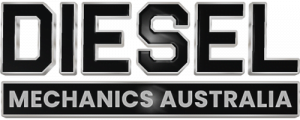
Marine operations can be tough on engines. Between the ever-changing conditions and the constant presence of water, a motor in this scenario must have exceptional durability. Fortunately, the ability of a diesel engine to withstand adversity is one of its defining characteristics. Even in this hostile environment, a marine diesel engine has an expected 5,000-hour lifespan. That lifespan can be extended to 8,000 hours with attentive maintenance.
A gasoline-powered marine engine, on the other hand, will require maintenance after 1,000 hours in a marine application and is unlikely to make it past 1,500. Diesel engines may last the life of your boat if they are properly maintained. A diesel marine engine is easily the finest choice if you need a dependable workhorse that will get you home.

Why Do Diesel Marine Engines Last So Long?
Because diesel engines are commonly used in industrial settings, they are generally larger and more robust than gasoline engines. They’re also built with higher tolerances, which means every component is made to tighter standards and has less variation in quality and size.
Diesel engines feature larger crankshafts and cylinder heads, as well as more oil-bearing surfaces, ensuring that the entire system is adequately lubricated. The fact that diesel fuel is a light, non-volatile oil with excellent lubricity ensures that the engine keeps itself operating smoothly. Diesel fumes have a higher flash point than gasoline, making diesel engines more secure and longer-lived.
What Affects Marine Engine Life Expectancy?
Engines function at their peak when they’re exposed to a specific set of conditions. The engine compartment should be filled with cool, dry air — approximately 50 degrees Fahrenheit — at all times, which is something that may be hard to come by on the water.
The water’s salinity is also important. Because salt is inherently corrosive, engines used in brackish or saltwater are more likely to be damaged. Salt is highly corrosive to engines. Without a suitable cleaning system, it will significantly reduce engine lifespan.
The style of the engine also has an impact. Inboard engines, being placed within the boat and having integral cooling systems, tend to have a longer lifespan. Additionally, engine duration is limited by maintenance and inspection schedules, as well as appropriate engine loading and usage frequency.
What Can I Do to Make My Marine Engines Last Longer?
The greatest way to improve the life expectancy of your engine is to develop a regular maintenance plan, which should begin with routine checks.
Diesel systems require clean fuel. Today’s filters have transparent bowls that make finding contaminants simple. These should be monitored on a regular basis, as even the cleanest fuel docks will bring some water and grit into your gas tank. Another key component of effective diesel operation is fresh air. Because a diesel engine’s exhaust should always be clear, check the filter every now and then for colour change.
Finally, check your oil frequently. Transfer the oil from the dipstick to your bare hands before every start to detect any foreign objects or contaminants. The oil should be replaced every 100 hours, or once a year at the absolute least.
Keep Your Engine Alive With Diesel Mechanics Australia
The cost of a diesel engine is significant, and with good treatment, it may last a long time. Diesel Mechanics Australia has years of expertise assisting customers in keeping their engines and boats on the water. We’ve got the equipment and personnel to help you with all of your diesel engine needs, from routine maintenance to a complete rebuild. One of our pleasant customer care professionals would be delighted to assist you.

